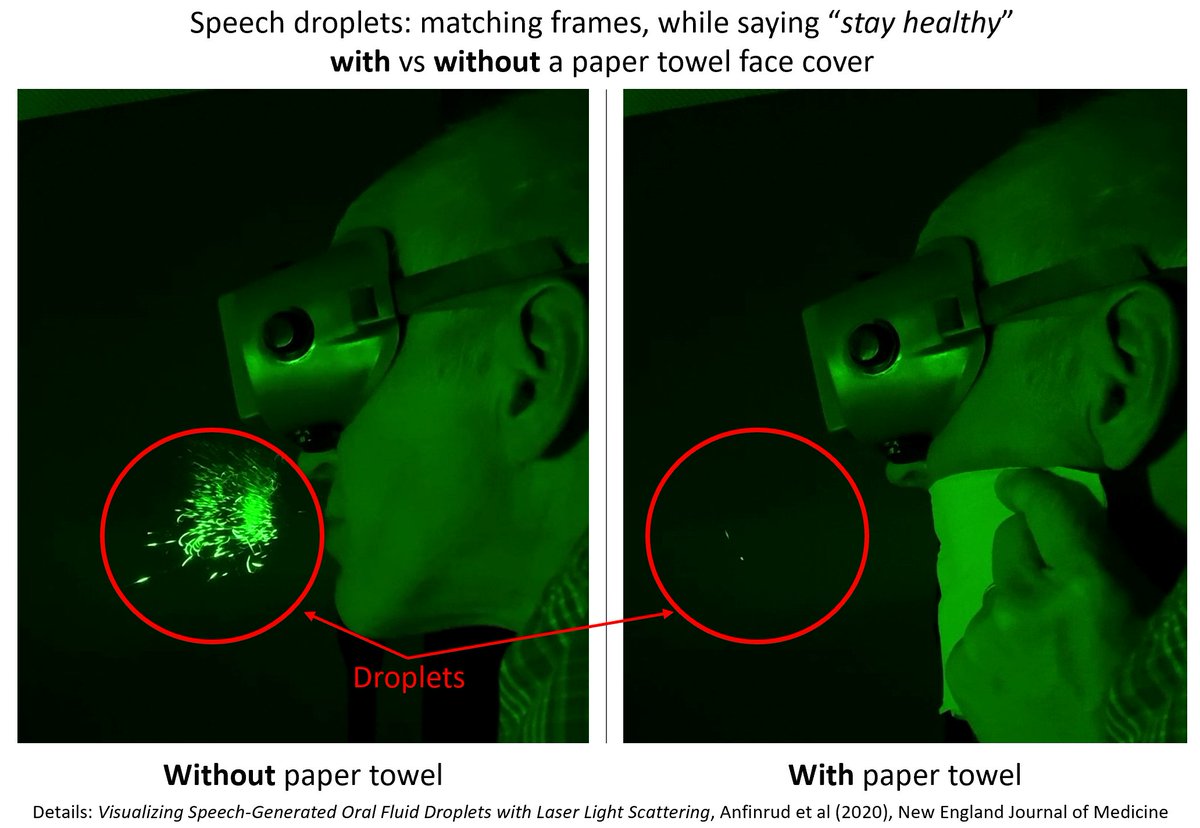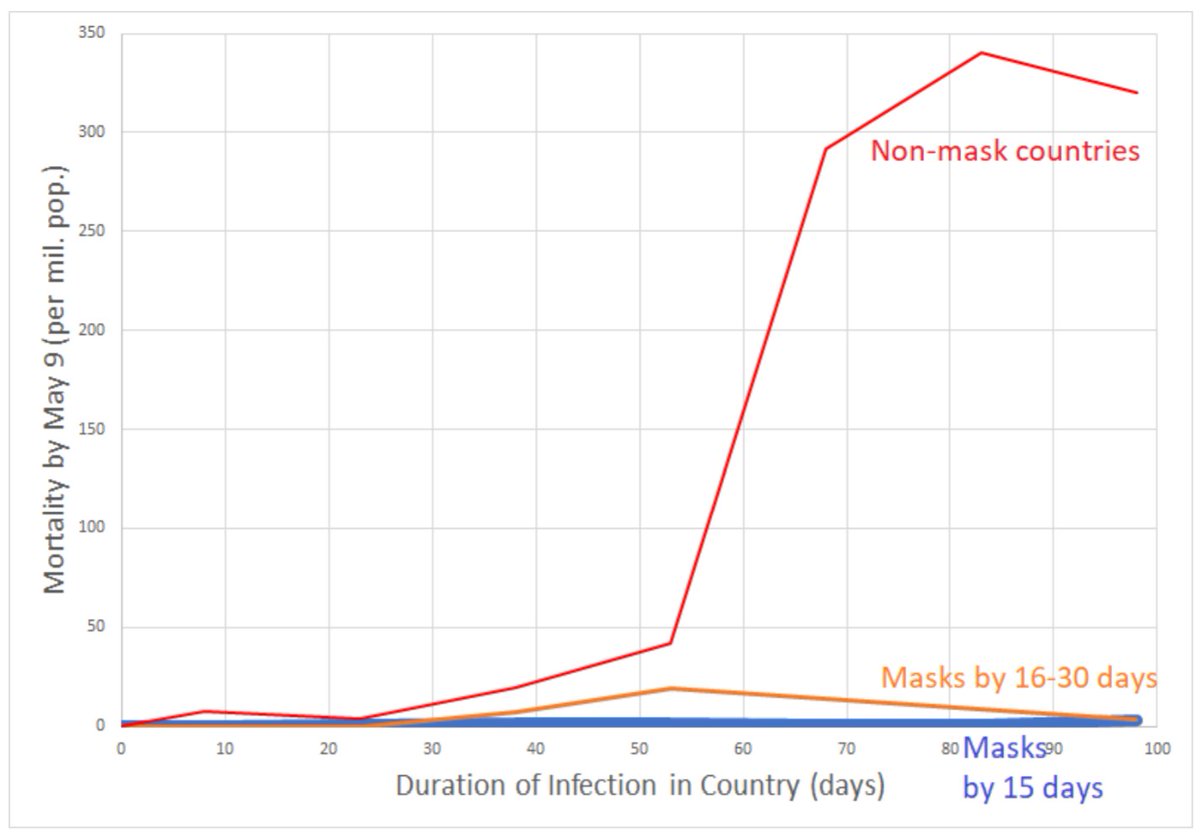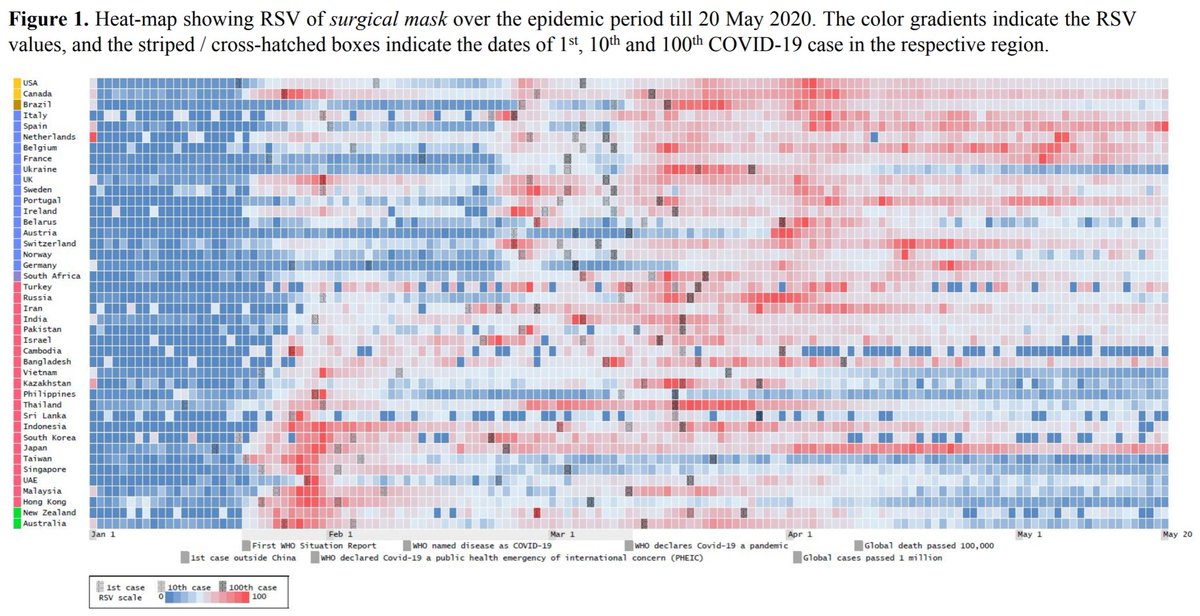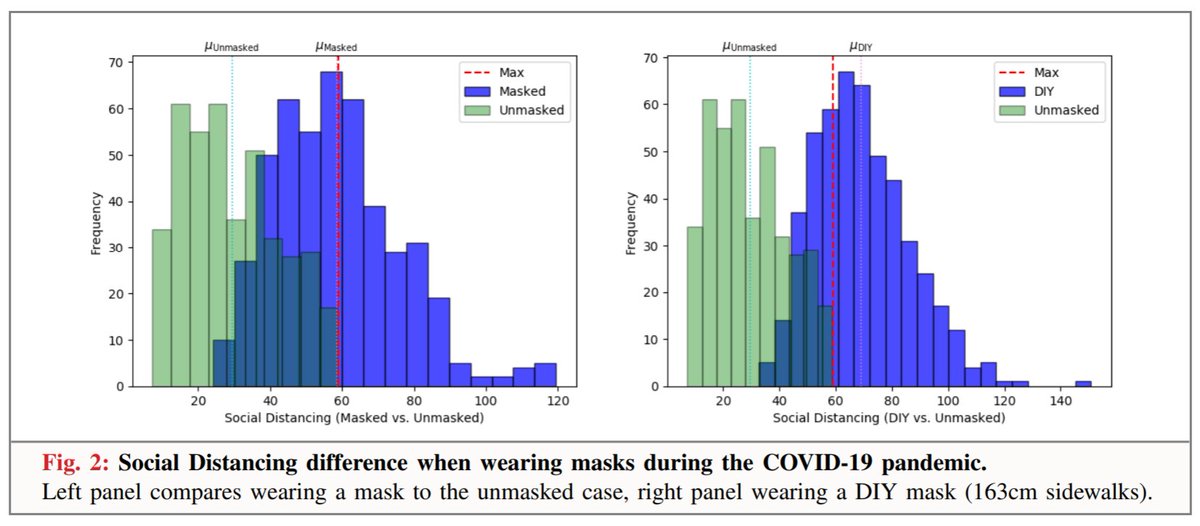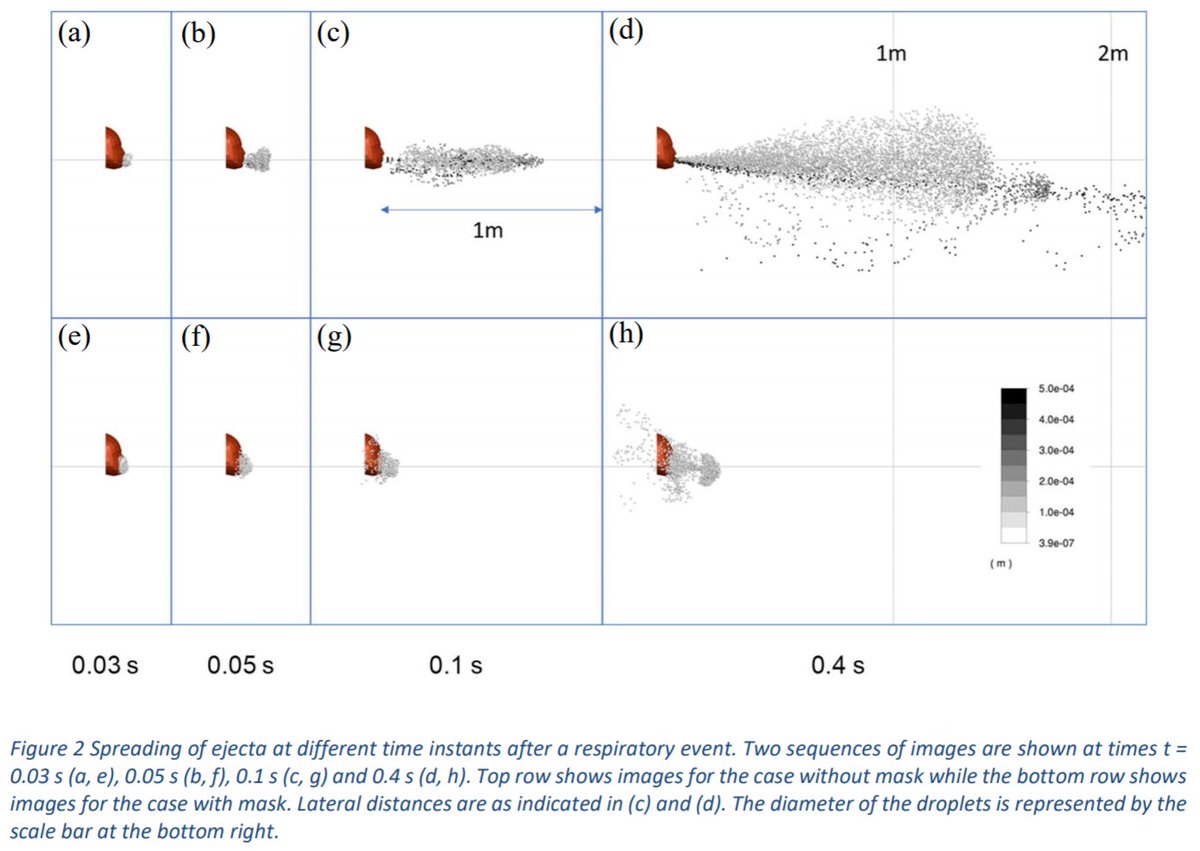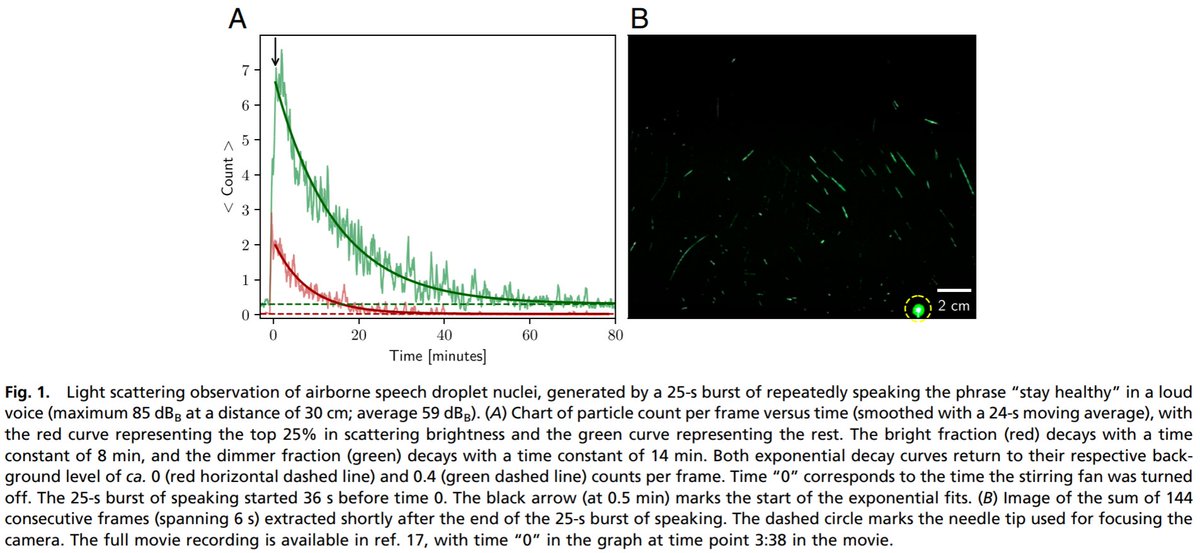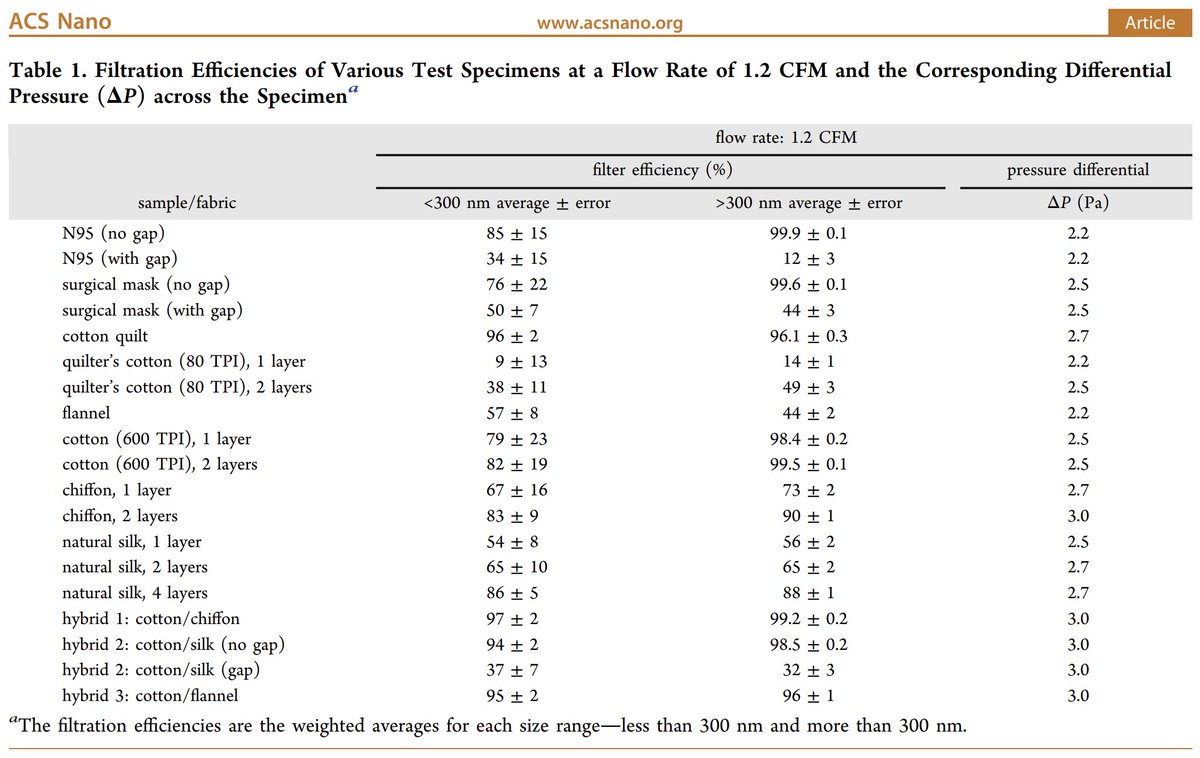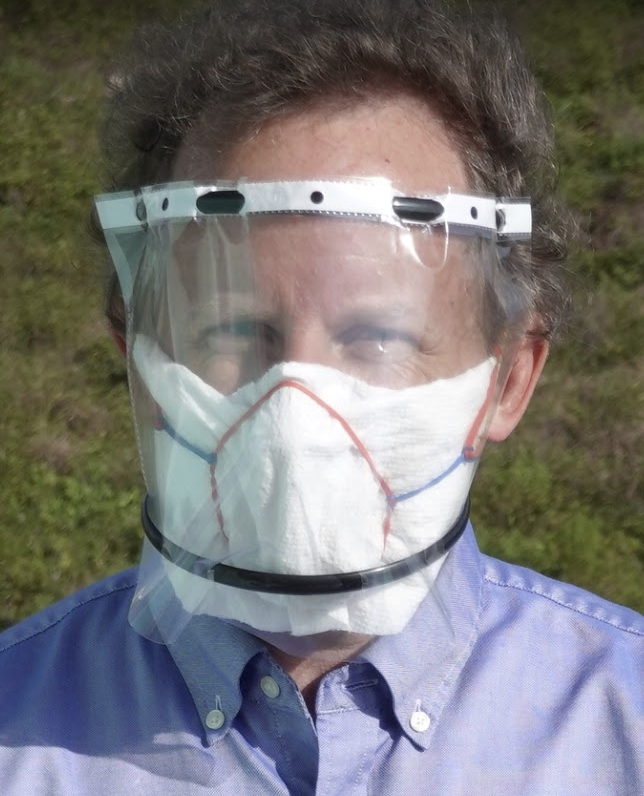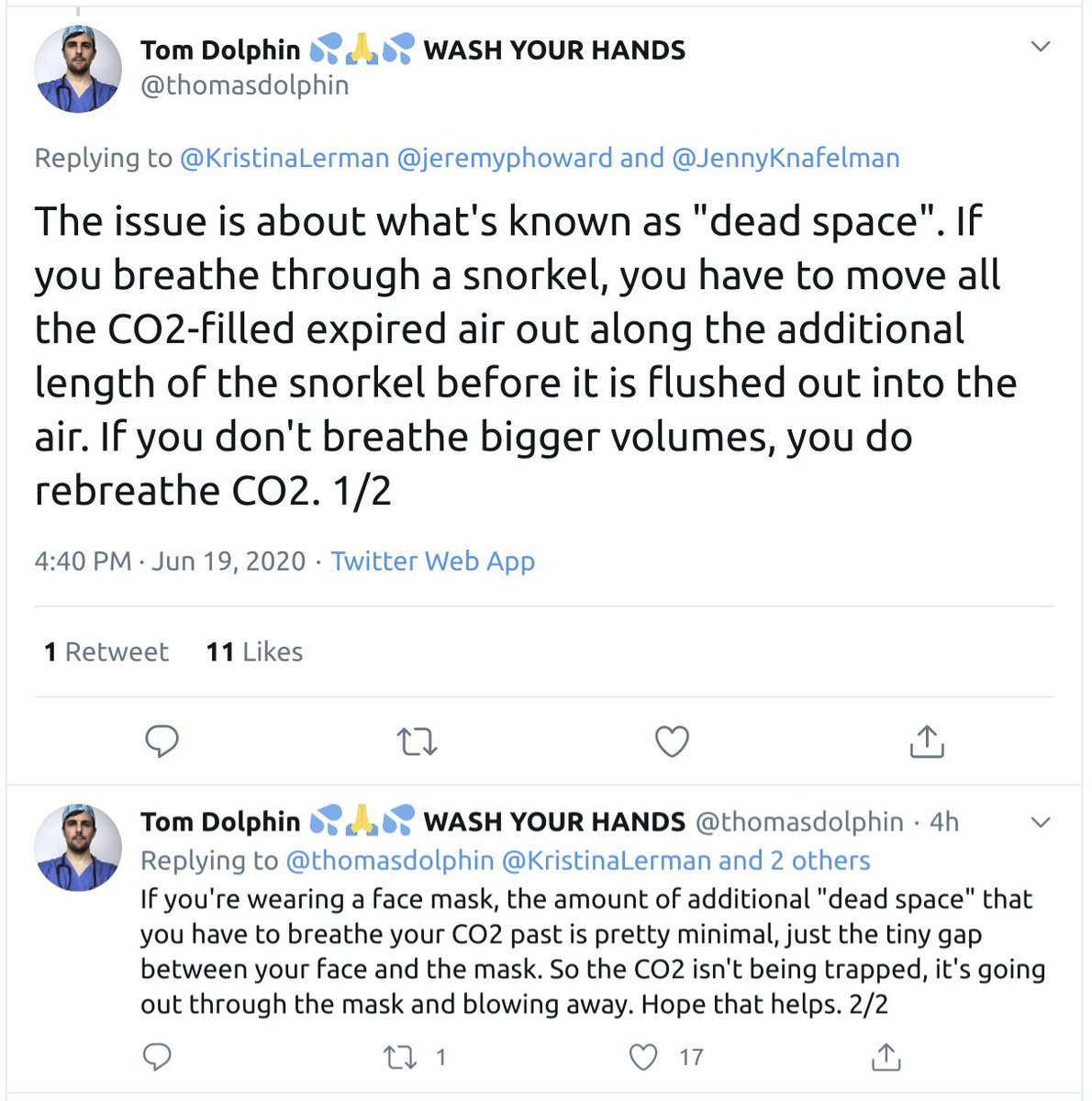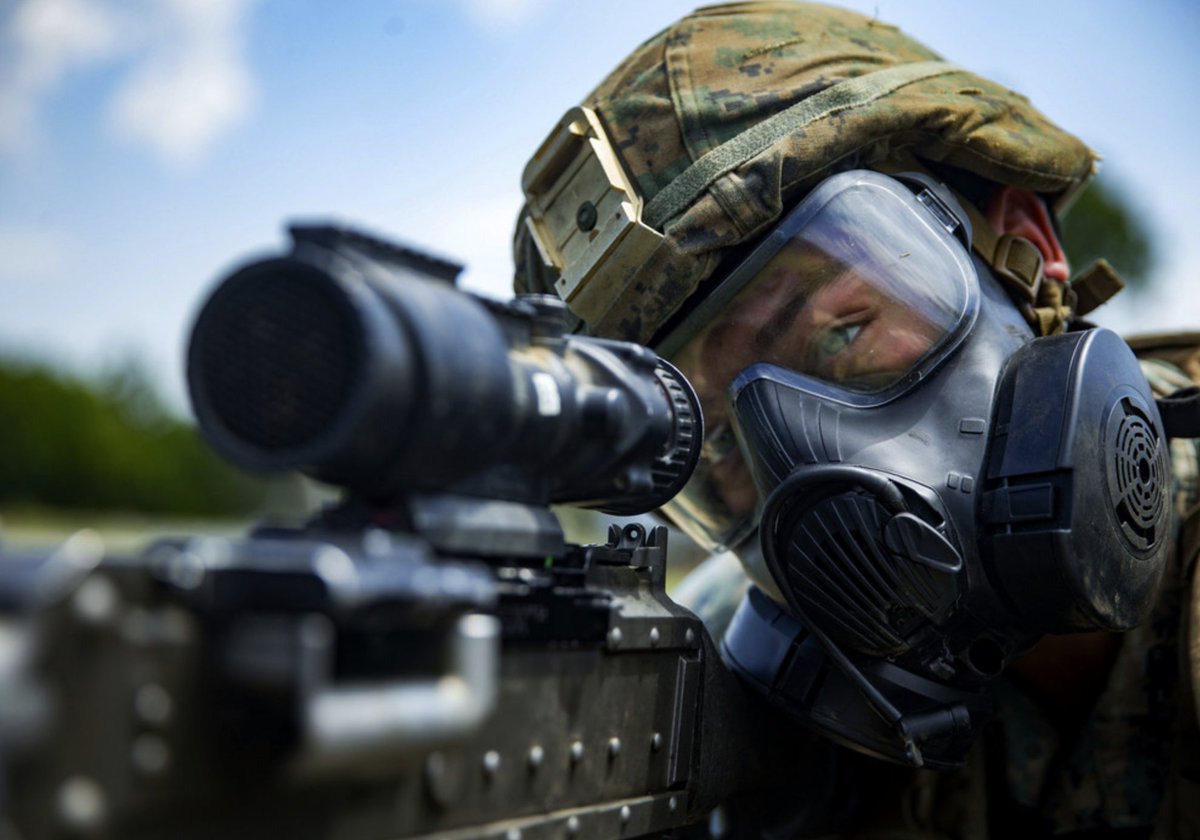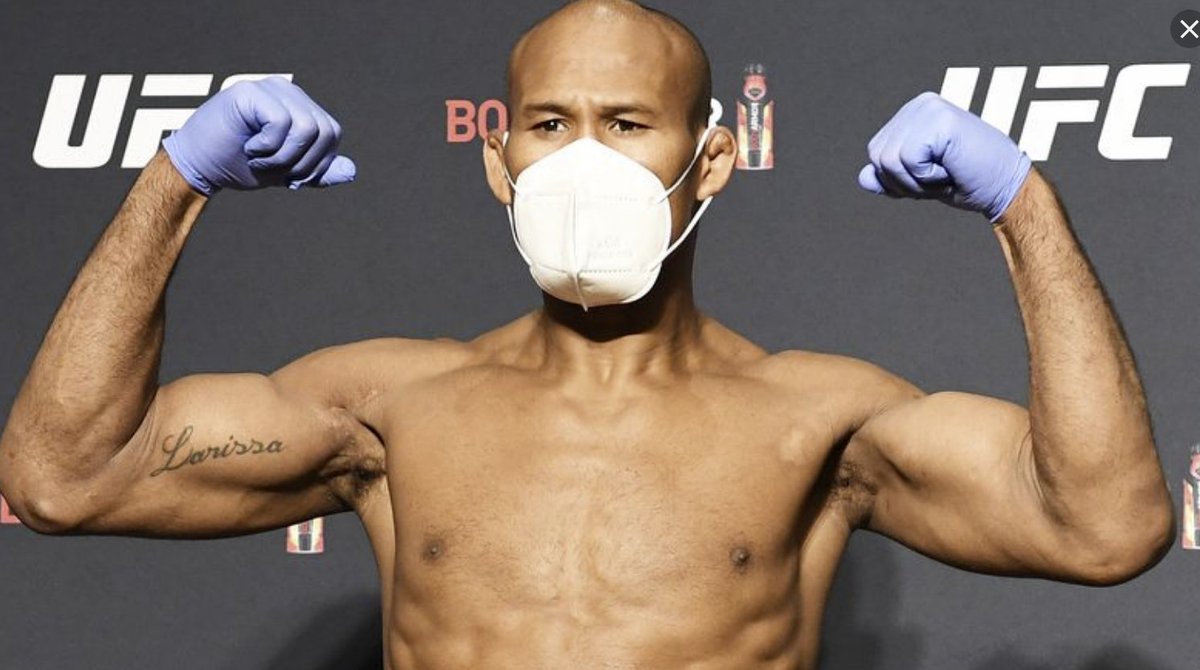So do these non-medical masks we& #39;re all meant to be wearing actually do anything?
Well yes, yes they almost certainly do. Here& #39;s a thread about the current science.
Let& #39;s start by explaining this striking picture of a researcher speaking in a laser scattering chamber.
1/n
Well yes, yes they almost certainly do. Here& #39;s a thread about the current science.
Let& #39;s start by explaining this striking picture of a researcher speaking in a laser scattering chamber.
1/n
The picture above shows speech droplets, which are believed to be the key transmission vector for COVID-19, with vs without a paper towel face cover. As you see, nearly all droplets are blocked.
Here& #39;s a video with a cloth covering, from this NEJM paper: https://www.nejm.org/doi/full/10.1056/NEJMc2007800">https://www.nejm.org/doi/full/...
Here& #39;s a video with a cloth covering, from this NEJM paper: https://www.nejm.org/doi/full/10.1056/NEJMc2007800">https://www.nejm.org/doi/full/...
The reason we look at speech is because we now know that COVID-19 results in viral shedding in the upper respiratory tract, where speech can result in droplet formation.
Few asymptomatic patients show significant lower respiratory tract shedding
https://www.nature.com/articles/s41586-020-2196-x">https://www.nature.com/articles/...
Few asymptomatic patients show significant lower respiratory tract shedding
https://www.nature.com/articles/s41586-020-2196-x">https://www.nature.com/articles/...
Droplets from breathing would only be an issue if shedding was occurring in the lower respiratory tract, which seems unlikely for folks without symptoms.
Even if breathing does cause infection, cloth masks may be the best at blocking breath droplets too!
https://arxiv.org/abs/2005.10720 ">https://arxiv.org/abs/2005....
Even if breathing does cause infection, cloth masks may be the best at blocking breath droplets too!
https://arxiv.org/abs/2005.10720 ">https://arxiv.org/abs/2005....
So if masks look so good on paper, do they work in practice? They sure seem to!
In countries with universal mask-wearing, per-capita coronavirus mortality increased by just 5.4% each week compared with 48% each week in remaining countries
https://www.medrxiv.org/content/10.1101/2020.05.22.20109231v1">https://www.medrxiv.org/content/1...
In countries with universal mask-wearing, per-capita coronavirus mortality increased by just 5.4% each week compared with 48% each week in remaining countries
https://www.medrxiv.org/content/10.1101/2020.05.22.20109231v1">https://www.medrxiv.org/content/1...
Another paper looked at mask mandates in the US, finding that the data "suggest as many as 230,000–450,000 COVID-19 cases possibly averted By May 22, 2020 by these mandates"
https://www.healthaffairs.org/doi/10.1377/hlthaff.2020.00818">https://www.healthaffairs.org/doi/10.13...
https://www.healthaffairs.org/doi/10.1377/hlthaff.2020.00818">https://www.healthaffairs.org/doi/10.13...
A paper in the American Journal of Respiratory and Critical Care Medicine used a clever technique to analyze Google Trends, E-commerce, and case data, and also found a strong relationship between masks and COVID-19 cases
https://www.atsjournals.org/doi/abs/10.1164/rccm.202004-1188LE">https://www.atsjournals.org/doi/abs/1...
https://www.atsjournals.org/doi/abs/10.1164/rccm.202004-1188LE">https://www.atsjournals.org/doi/abs/1...
These findings are in line with a model presented in Proceedings of the Royal Society, which found "when lock-down periods are implemented with 100% facemask use, there is vastly less disease spread, and the epidemic is brought under control"
https://royalsocietypublishing.org/doi/10.1098/rspa.2020.0376">https://royalsocietypublishing.org/doi/10.10...
https://royalsocietypublishing.org/doi/10.1098/rspa.2020.0376">https://royalsocietypublishing.org/doi/10.10...
Numerous other models have shown the same results, including both SEIR and Agent Based models developed by De Kai et al. https://www.vanityfair.com/news/2020/05/masks-covid-19-infections-would-plummet-new-study-says">https://www.vanityfair.com/news/2020...
We also see strong observational evidence, including a study that found that “face mask use by the primary case and family contacts before the primary case developed symptoms was 79% effective in reducing transmission” of COVID-19 https://gh.bmj.com/content/5/5/e002794">https://gh.bmj.com/content/5...
Masks work particularly well in conjunction with social distancing. A new "social distancing belt" device was used to show that people keep their distance better from mask wearers than from non wearers.
https://arxiv.org/pdf/2005.12446.pdf">https://arxiv.org/pdf/2005....
https://arxiv.org/pdf/2005.12446.pdf">https://arxiv.org/pdf/2005....
Furthermore, masks reduce the radius of the droplet cloud, based both on the Schlieren imaging study already mentioned above, and based on these fluid dynamics simulations
https://arxiv.org/abs/2005.03444 ">https://arxiv.org/abs/2005....
https://arxiv.org/abs/2005.03444 ">https://arxiv.org/abs/2005....
We covered an additional 106 references in our evidence review, "Face Masks Against COVID-19", including discussing sociological and other factors. https://www.preprints.org/manuscript/202004.0203/v2">https://www.preprints.org/manuscrip...
So there you have it, a taste of some of the science of mask wearing.
Next time you hear someone claim "those masks don& #39;t do anything", point them over here and set them straight!
Next time you hear someone claim "those masks don& #39;t do anything", point them over here and set them straight!
I& #39;ll post additional tweets to answer questions here. First question in the replies was: Is it enough to just avoid getting in front of people?
No. Droplets hang around for 10 minutes or more, and can blow around into a cloud formation.
https://www.pnas.org/content/117/22/11875">https://www.pnas.org/content/1...
No. Droplets hang around for 10 minutes or more, and can blow around into a cloud formation.
https://www.pnas.org/content/117/22/11875">https://www.pnas.org/content/1...
Q: My wearing a mask protects others, but does it also provide me with any meaningful protection?
A: Yes, it can, depending on the material you use (try a layer of cotton and of silk), and how tight fitting it is. Here& #39;s a table of filtration amounts:
https://pubs.acs.org/doi/pdf/10.1021/acsnano.0c03252">https://pubs.acs.org/doi/pdf/1...
A: Yes, it can, depending on the material you use (try a layer of cotton and of silk), and how tight fitting it is. Here& #39;s a table of filtration amounts:
https://pubs.acs.org/doi/pdf/10.1021/acsnano.0c03252">https://pubs.acs.org/doi/pdf/1...
Q: I heard a doctor claim masks don& #39;t work. Shouldn& #39;t we listen to experts like him?
A: For any scientific issue, there will always be folks outside the scientific consensus, like climate change and vaccines. But most top experts say: wear a mask. https://masks4all.co/letter-over-100-prominent-health-experts-call-for-cloth-mask-requirements/">https://masks4all.co/letter-ov...
A: For any scientific issue, there will always be folks outside the scientific consensus, like climate change and vaccines. But most top experts say: wear a mask. https://masks4all.co/letter-over-100-prominent-health-experts-call-for-cloth-mask-requirements/">https://masks4all.co/letter-ov...
Q: How do I improve the fit of my cloth mask?
A: Use rolled aluminum foil to create a moldable nose piece, and rubber bands to create a tightener. See this video for details and a demo. ">https://youtu.be/4xT6zEE4y...
A: Use rolled aluminum foil to create a moldable nose piece, and rubber bands to create a tightener. See this video for details and a demo. ">https://youtu.be/4xT6zEE4y...
Q: How about face shields?
A: Face shields are not well studied, but are probably a useful addition. Here& #39;s my "maxed out" face covering, using paper towel, foil nose piece, rubber bands, a transparent file folder, and hair bands. Took 5 mins, required no tools, cost $0.65
A: Face shields are not well studied, but are probably a useful addition. Here& #39;s my "maxed out" face covering, using paper towel, foil nose piece, rubber bands, a transparent file folder, and hair bands. Took 5 mins, required no tools, cost $0.65
Credit for the rubber band tightener idea: https://www.fixthemask.com/make-it ">https://www.fixthemask.com/make-it&q...

 Read on Twitter
Read on Twitter